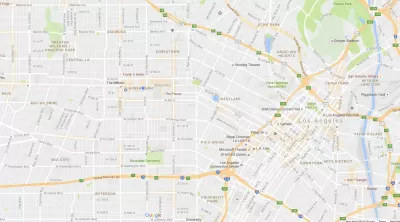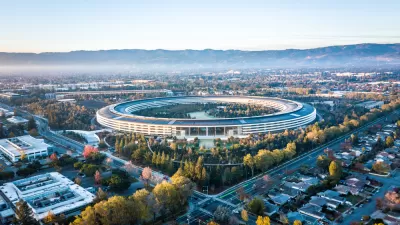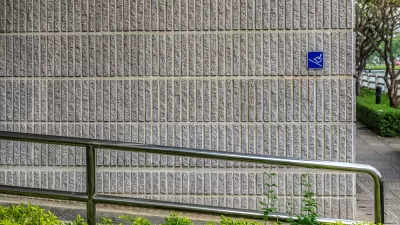Google's new maps redesign calls out areas of interest, but is "interesting" just a euphemism for rich?

"Interesting" is one of those garbage words that doesn't mean much; in different contexts, it's used to mean good, bad, weird, and (once in a great while) worthy of interest. So it was "interesting" when Google launched a new feature highlighting "areas of interest."
The deeply subjective notion of what is interesting seemed problematic (another deeply flawed word) to Joe Cortright. He cites a CityLab piece by Laura Bliss that compared the highlights in the more commercial Westlake neighborhood of Los Angeles to the richer but more residential Sawtelle, finding that Sawtelle seemed to be generously marked as "of interest" even on blocks where the only interesting things would seem to be people's houses.
Still, the word is slippery and Cortright's article in City Observatory goes on to say, "it’s a fair point to suggest that not everyone will find the same set of destinations “interesting,” and it’s likely, given capitalism, demographics and math, that any algorithm-based means of identifying interesting areas will tend to select places that appeal to the masses." Cortright suggests the solution to the "interesting” problem will come from more iteration on the concept of mapping points-of-interest, and he predicts that is likely to happen. "The more data (including everything geolocated on the web, including Google maps and listings, tweets, user reviews, and traffic data) are widely available to end users, and the more different the people who are crafting their own maps, the better we may be able to create images that reflect the diversity of interests of map users."
FULL STORY: The most interesting neighborhood in the world

Planetizen Federal Action Tracker
A weekly monitor of how Trump’s orders and actions are impacting planners and planning in America.

Congressman Proposes Bill to Rename DC Metro “Trump Train”
The Make Autorail Great Again Act would withhold federal funding to the system until the Washington Metropolitan Area Transit Authority (WMATA), rebrands as the Washington Metropolitan Authority for Greater Access (WMAGA).

DARTSpace Platform Streamlines Dallas TOD Application Process
The Dallas transit agency hopes a shorter permitting timeline will boost transit-oriented development around rail stations.

LA County Creating Action Plan to Tackle Extreme Heat
Los Angeles County is creating a Heat Action Plan to help communities stay safe during extreme heat, with steps like adding more shade, improving buildings, and supporting the neighborhoods most at risk.

Maryland Plans Quick-Build Complete Streets Projects
The state will use low-cost interventions to improve road safety in five Maryland counties.

Downtown Los Angeles Gears Up for Growth
A new report highlights Downtown L.A.’s ongoing revival through major housing projects, adaptive reuse, hospitality growth, and preparations for global events in the years ahead.
Urban Design for Planners 1: Software Tools
This six-course series explores essential urban design concepts using open source software and equips planners with the tools they need to participate fully in the urban design process.
Planning for Universal Design
Learn the tools for implementing Universal Design in planning regulations.
City of Charlotte
Municipality of Princeton
Roanoke Valley-Alleghany Regional Commission
City of Camden Redevelopment Agency
City of Astoria
Transportation Research & Education Center (TREC) at Portland State University
US High Speed Rail Association
City of Camden Redevelopment Agency
Municipality of Princeton (NJ)





























